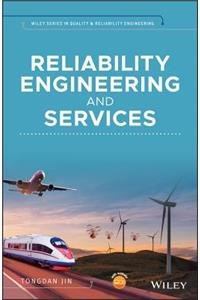Sale!
Modern Machining Processes (Hardback) | Released: 01-Aug-82
By: P.C. Pandey (Author) Publisher: McGraw-Hill Education - Europe20.00% Off Original price was: 715.00$.572.00$Current price is: 572.00$.
You save 143.00$
Modern Machining Processes introduces non-traditional machining methods that are being increasingly used in shop floors. Due to the nature of the raw materials being used in various manufacturing processes, there was a need for devising new machining processes. Modern Machining Processes covers new techniques that have evolved to meet the... Read More
In stock
Ships within 1-2 Business Days

100% Orginal Books

Easy Replacement

Certified product

Secure Checkout

On time delivery
Author:
![]()
P.C. Pandey
Publisher Name:
![]()
McGraw-Hill Education - Europe
Language:
![]()
Binding:
![]()
(Hardback)
About The Book
Modern Machining Processes introduces non-traditional machining methods that are being increasingly used in shop floors.
Due to the nature of the raw materials being used in various manufacturing processes, there was a need for devising new machining processes. Modern Machining Processes covers new techniques that have evolved to meet the changing needs.
Many industries use materials that are very brittle or extremely hard. Conventional machining processes depend on contact between the raw material and the tools used to modify them. But in some cases, this contact could cause damage either to the tool or to the material being processed.
For instance, using traditional contact based tools on very hard materials like tungsten carbide might result in damage to the tool. On the other hand, brittle material like ceramic might be easily damaged if processed using traditional tools. Unconventional machining processes involve techniques that do not require direct contact between the tool and the material being processed. This book classifies these tools based on the type of energy used in the process.
The first chapter is Modern Machining Processes: An Overview. This chapter also covers process selection. It explains the various factors that have to be taken into account while choosing a particular processing method.
The book covers Modern Machining Processes in three sections. The first of these, covered in chapter two, is Mechanical Processes. This chapter examines techniques that make use of mechanical energy. It looks at ultrasonic machining, water jet and abrasive jet machining methods.
The next chapter covers Electrochemical and Chemical Metal Removing Processes. This section covers techniques like electrochemical machining, electrochemical honing, electrochemical grinding, and chemical machining.
The chapter, Thermal Metal Removal Processes, detail methods like plasma arc machining, neutral particle etching, electric discharge machining, hot machining, electron beam machining and laser beam machining.
The book contains concise explanations of the various unconventional machining methods. It also includes clear examples to enable the students to clearly understand the theory. Modern Machining Processes is mainly aimed at students who are studying mechanical or production engineering. However, it can also be a good quick reference text for professionals.
P. C. Pandey is a professor.
He is also the author of Production Engineering and Science.
P. C. Pandey is a graduate of Banaras Hindu University. He studied for his postgraduate diploma at King’s College, Newcastle. He earned his doctorate from the University of Nottingham. He is now in the faculty of the University of Roorkee. He is a Professor in the Mechanical and Industrial Engineering department.
H. S. Shan is also a member of the faculty of the University of Roorkee.
He has written another book, Manufacturing Processes Volume 1.
H. S. Shan holds a Master’s degree from the University of Roorkee. He also has a doctorate degree from that institution. He is now in the faculty of that university, in the Department of Mechanical and Industrial Engineering, as a Reader.





